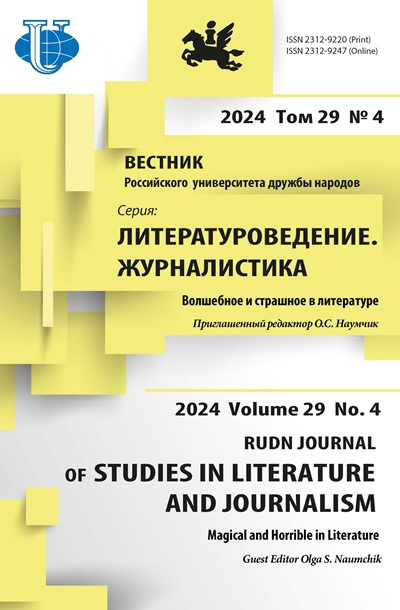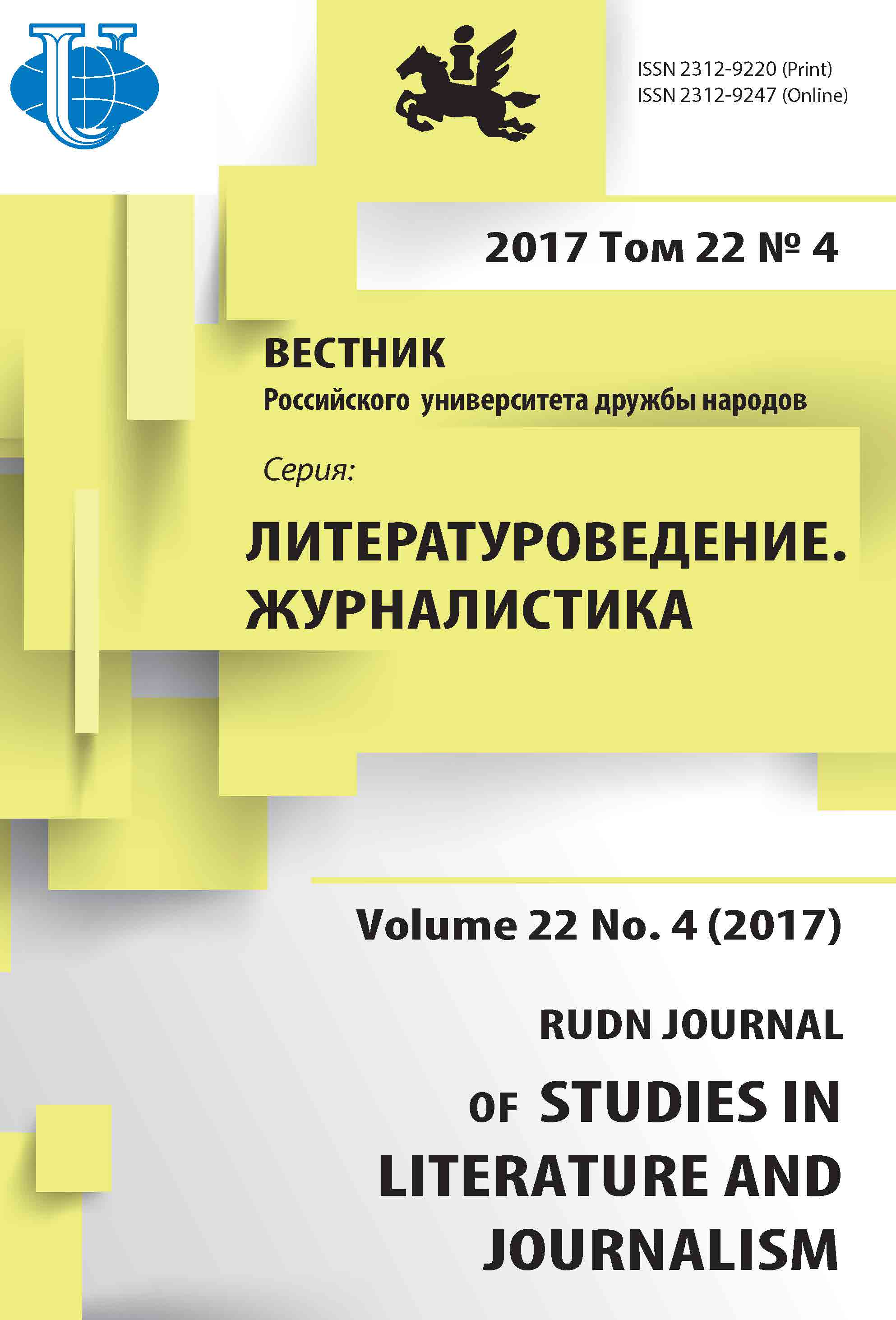GENRE FEATURES OF “LAMENT ON THE CAPTURE AND ULTIMATE DESTRUCTION OF THE HIGHEST AND MOST LUCENT OF THE MOSCOW STATE”
- Authors: Il’icheva VV1
-
Affiliations:
- Peoples Friendship University of Russia
- Issue: Vol 22, No 4 (2017)
- Pages: 567-574
- Section: ARTICLES
- URL: https://journals.rudn.ru/literary-criticism/article/view/17581
- DOI: https://doi.org/10.22363/2312-9220-2017-22-4-567-574
Cite item
Full Text
Abstract
The article analyzes the compositional structure and genre are determined by the signs of the solemn speech on the basis of the rhetorical works of the unknown author of the XVII century. The study showed that the peculiarity of this literary monument is the combination of two genres of solemn eloquence - the praise and the weeping in one oratorical work. A distinctive feature of “Lament” is the author’s desire not only to state the fact of the ruin of the state, but to introduce its own interpretation of the causes of the events and the way of salvation of the state.
About the authors
V V Il’icheva
Peoples Friendship University of Russia
Author for correspondence.
Email: lera_ilyicheva@mail.ru
Il’icheva Valeria Vladimirovna, Candidate of Philology, Assistant professor of the Department of Mass Communication, PFUR.
Miklukho-Maklaya str., 6, Moscow, Russia, 117198References
- Lament on the capture and ultimate destruction of the highest and most lucent of the Moscow state. The preparation of the text, translation and commentary by S.K. Rossovich. Access: http:// lib.pushkinskijdom.ru/Default.aspx?tabid=10867
- Hadrian-Peretz V.P. Essays on the poetic style of Ancient Russia. Lyric-epic laments. Leningrad, 1948. Access: http://zadocs.ru/literatura/15261/index.html?page=9
- Konyreva I.V. Crying as a phenomenon of Russian culture: avtoref. diss. … Сand. cultural. — Komsomolsk on the Amur: State. those. University, 2003.- 24 p.
- Skvirskaya T.Z. Weeping and repentance in ancient Russian chants: avtoref. diss.. Cand. arts. St. Petersburg, 1993. 24 p.
- Literary monuments of Ancient Russia. The end of XVI — the beginning XVII centuries. Foreword and comments by V. Perevezentsev, preparation of the text by A.S. Ermolina. Access: http://www. portal-slovo.ru/history/39515.php
















